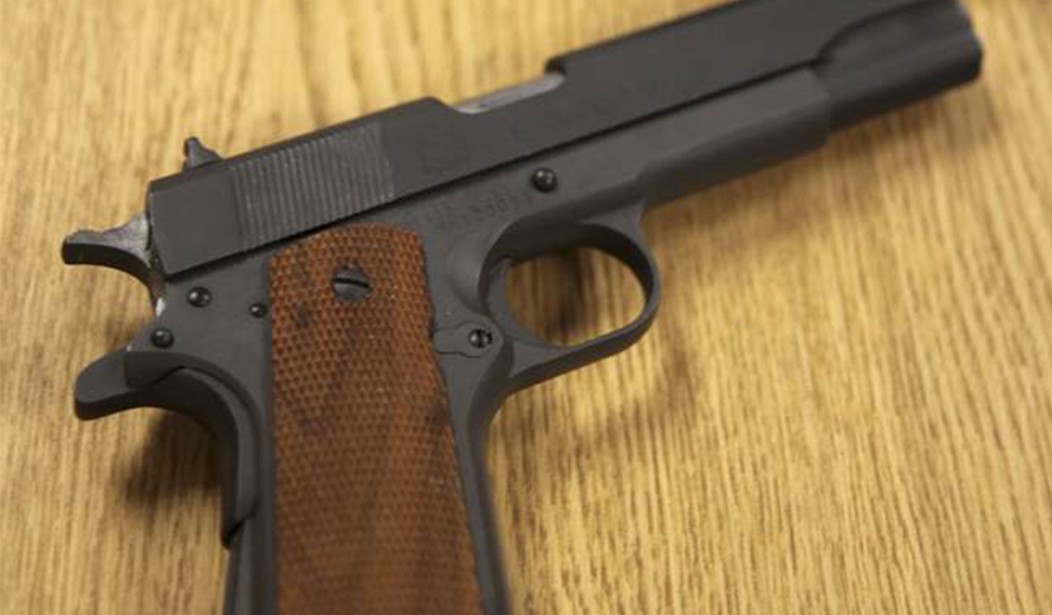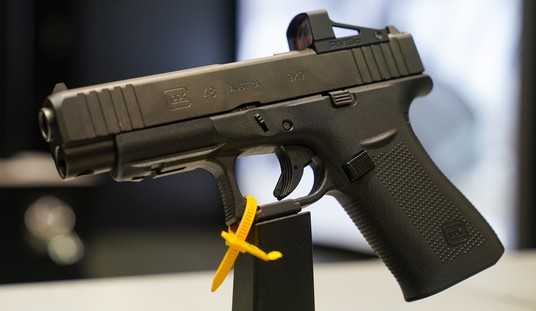There is no debate about the importance of securely storing your firearms, especially if you have kids. That's actually something all sides of the gun debate agree on.
It's just about everything else that causes an issue.
To make matters worse, we've had numerous physicians decide to interject themselves into the gun debate, arguing their medical degree somehow makes them experts on firearm policy. Sure, there are doctors who do actually understand firearms, gun rights, and the harsh reality of violent crime beyond what they come across in the ER or surgical suite, but a lot of others have tripped over themselves to display their ignorance.
And the ramifications of that action can be found when some doctors are trying to take a step back and claim to want to have a reasonable discussion about something like gun storage, like doctors at the Children's Hospital of Philadelphia.
Counseling families about where and how they store their weapons has typically been at the discretion of the doctor, and it's a recommended practice pediatricians have been following for decades, similar to how they ask about car seats, pools, allergies, and household chemical storage.
But doctors at CHOP are now not only discussing the subject with parents, but also providing free gun locks to Philadelphians in need. Plans are in the works to also offer free keypad safes in the coming months.
Questions about gun safety and storage are now built into many of the hospital system's primary care patient questionnaires. Much in the same way doctors are reminded to ask about nutrition, sleep, and development, they're now prompted to discuss the topic at all visits from when a child is born until age 19, said Dorothy Novick, the attending physician spearheading the initiative.
The hope is to educate families about safe storage, and keep guns out of the hands of children, who at just 2 years old, are strong enough to pull a trigger. It's also essential to reducing suicide, Novick said, which is now a leading cause of death for kids 10 to 14. Teens who live in homes with guns are four times more likely to die by suicide, and there has been a dramatic rise in suicide among Black youth in recent years.
While doctors are advised to explain that a gun-free home is the safest for a child, they've realized that's not always a realistic option for some families, Novick said. They want to make sure, she said, that if a patient's family owns a weapon, they can have a judgment-free conversation with their doctor to ensure it's stored as safely as possible.
There's just one problem with that goal, and that's the damage done by other physicians.
See, if a doctor wants to talk to me about guns, gun ownership, or anything related to firearms, the medical profession as a whole has made it clear they're hostile toward my rights. They've gleefully taken part in the stigmatization of gun ownership that's been going on for years now. As such, I don't feel like a judgment-free conversation is remotely possible with a doctor who isn't explicitly pro-gun.
And no one is going to walk around at work in a children's hospital in Philadelphia wearing an NRA t-shirt under their lab coat.
That's a problem because these docs have a gun lock program. They seemingly want to help people secure their guns so that their kids don't get hold of them. Yet there's also no reason to actually trust them because of the view many gun owners have of the medical profession as a whole.
For example, the American Medical Association claims to speak for the medical profession as a whole--though, it should be noted, a lot of doctors aren't members--and yet they've continued to push for gun control. They've pushed doctors to ask invasive questions about gun ownership of their patients. They've basically echoed every anti-gun talking point.
So when a doctor sits down to have a "judgment-free discussion" with a patient's family, is there any reason for that family to trust it will really be judgment-free?
Not really, and if these docs want to change that, they need to look to their fellow physicians to knock off the activism.








Join the conversation as a VIP Member